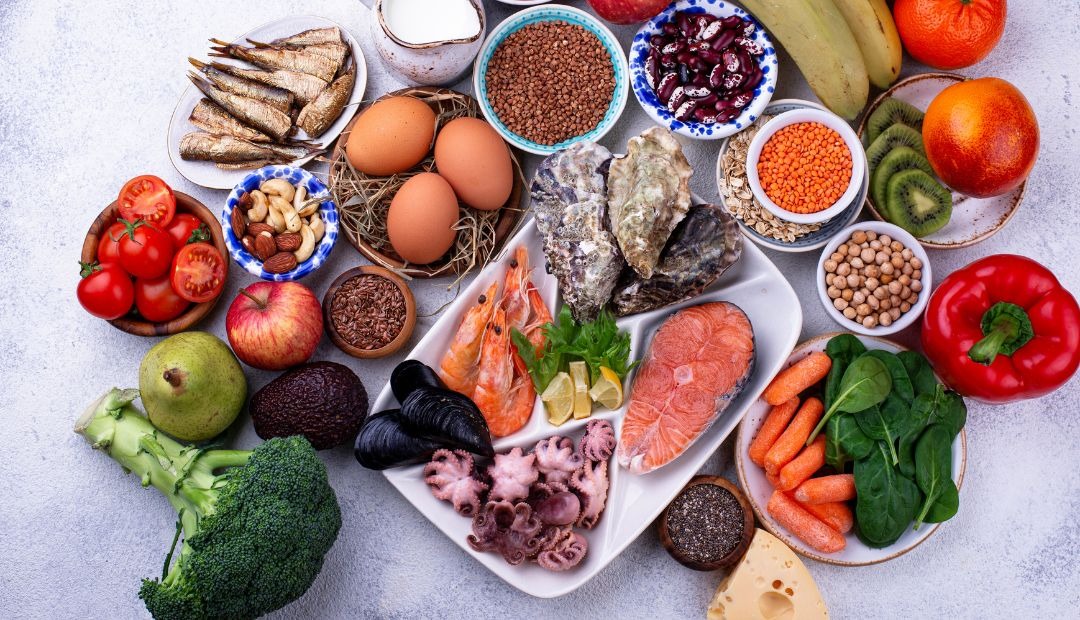Diving into a new lifestyle, especially in bustling pet-friendly apartments in San Antonio, can often come with a set of assumptions. When it comes to adopting a pescatarian diet, many believe it’s all about seafood like fish, shrimp, and mussels. However, this dietary choice actually embraces a wide variety of foods, offering a nutritional balance akin to vegetarianism.
A pescatarian diet is rich in whole grains, dairy, eggs, fruits, and vegetables, steering clear of beef, pork, and other non-seafood meats. The unique twist? It includes fish as a principal protein source, distinguishing it from vegetarian diets.
If you're considering revamping your eating habits, explore the benefits and drawbacks of a pescatarian lifestyle below to determine if it aligns with your personal health goals.
Reasons for Going on a Pescatarian Diet
Almost all kinds of dietary shifts aren't easy. But by having your "why" in mind, you can easily find your motivation to stick to a pescatarian diet.
People choose to enjoy a vegetarian diet (with the addition of fish and seafood) for various reasons.
Some do it out of concern for the environment. Compared to omnivorous diets, a pescatarian one has a significantly less environmental impact on greenhouse gas emissions and land and energy use. As long as you choose sustainably sourced fish, going pescatarian can help you lower your carbon footprint.
Others prefer to reap the many health benefits from a plant-based diet with fish. It offers tons of health benefits and reduces the risk of various chronic conditions.
Benefits
As was mentioned, a pescatarian diet can offer a wide range of benefits to your overall lifestyle. Here are some of them:
Rich Source of Omega-3
Most fish are rich in omega-3, a kind of fatty acid. Omega-3 is anti-inflammatory, which means it can help reduce the risk of heart diseases, type 2 diabetes, cancer, arthritis, and other conditions associated with chronic inflammation.
Flexibility
Another great benefit of a pescatarian diet is that it's pretty flexible. There's no limit to portion sizes, and it doesn't have too many restrictions on what to eat. Coupled with the benefits of a plant-based diet, it provides an easy and sustainable diet plan for people from different walks of life.
Can Help You Lose Weight
Cutting back on meat consumption can easily help you in your weight loss journey. Because a pescatarian diet involves fewer calories, you can find it easier to maintain a healthy weight.
Just make sure that when preparing your fish meal, you'll need to avoid frying it in oil. Instead, use healthier cooking methods, like steaming, grilling, or baking.
Downsides
Like most diet plans, going pescatarian has its fair share of disadvantages. Before you make the switch to this diet, be sure to factor in the following:
Mercury Content
One of the most common reasons some people aren't a fan of this diet is the high mercury content in certain types of fish. Mercury can cause different health conditions, ranging from insomnia and headaches to muscle weakness and neurological damage.
But according to the U.S. Food and Drug Administration, mercury in fish isn't a risk. That being said, it is still advisable to avoid or limit the consumption of specific predatory fish with high mercury levels. These include king mackerel, shark, swordfish, bigeye tuna, and tilefish.
Can Be Expensive
If you've ever passed by the seafood section in the grocery store, you probably know how pricey lobsters and other kinds of seafood can get. And depending on the season, fresh fish can also be expensive.
Luckily, you can enjoy a pescatarian diet without going broke. There are lots of cheap fish options, such as catfish, sardines, salmon, and canned light tuna. Even better, these fish come with lower mercury content than others.
Foods to Eat and Not to Eat
Ready to go pescatarian? To help you get started, here's a list of what to eat and avoid:
To Eat
- Fish and shellfish
- Eggs
- Dairy
- Legumes
- Grains
- Fruits and vegetables
- Nuts and seeds
Not to Eat
- Beef
- Pork
- Lamb
- Chicken and other poultry
- Wild game
Is the Pescatarian Lifestyle for You
Whether you are interested in losing weight, adding more proteins to your vegetarian diet, or wanting to live a more eco-sustainable lifestyle, eating a pescatarian diet is a great option. Now that you know the basics, you can determine if it is right for you.
Oxford at Medical Center Apartments in San Antonio, TX



